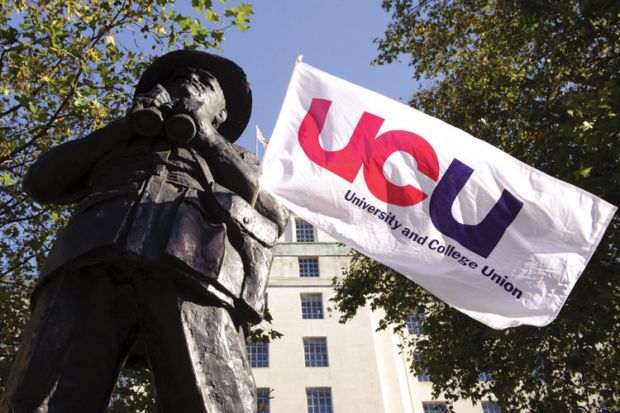Members of higher education’s largest trade union will be urged to reject a 1 per cent pay offer in a forthcoming ballot, raising the prospect of industrial action in universities.
University staff who are members of the University and College Union are to be consulted on the final offer for 2015-16 after delegates at the union’s congress in Glasgow backed the move.
The congress, which took place on 23-24 May, backed a motion by representatives from Leeds Beckett University that said “the UCU should call for members to reject the offer and vote yes for strike action and action short of a strike”.
Meanwhile, in another congress vote, delegates backed plans to ask staff to boycott the implementation of the government’s Prevent counter-terror strategy in higher education, despite warnings that non-cooperation may be unlawful.
The motion passed on pay said the UCU “must actively campaign amongst members to explain why the pay campaign is particularly important this year after many years of real-terms pay cuts”.
The motion was carried in a private session, from which the media were excluded. But it is believed that the vote was close and required a recount to establish the result.
The call for more explicit advice on the pay offer follows criticism from some union activists that the UCU had shown weak leadership by failing to urge members to turn down pay offers in previous years.
Under the latest offer, pay for staff on the eight lowest points of the national pay spine would be increased by up to 2.65 per cent, which would mean that they are paid at least the living wage of £9.15 an hour in London and £7.85 in the rest of the UK.
The offer of 1 per cent for the rest of the pay spine – described as “disappointing” by the UCU – represents a small advance on the employers’ original proposal for 2015-16 of 0.9 per cent.
That proposal addressed “all aspects” of the pay claim by trade unions involved in higher education in spite of “the ever-increasingly challenging sector environment”, according to the Universities and Colleges Employers Association.
On Prevent, delegates voted overwhelmingly in favour of a motion to boycott the government’s initiative, which includes an aim to stop students from becoming radicalised in universities. The motion said that implementing Prevent will “force our members to spy on learners” and “be involved in the racist labelling of students”, principally Muslim students.
“We should all be reporting our students because they should all be becoming radical,” said Andrew Higginbotham, UCU branch chair at Kingston University.
However, the UCU leadership said it had taken legal advice, which stated that any boycott of Prevent might be illegal as it would constitute a failure to carry out reasonable instructions from an employer.




